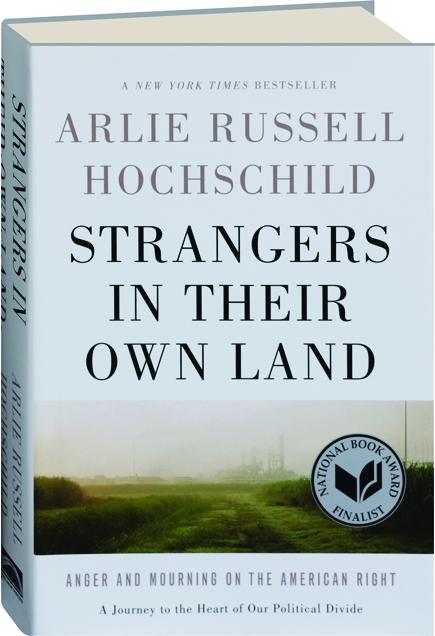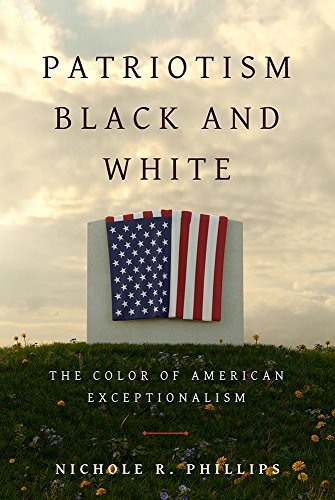 This week marks the 57th anniversary of the historic March on Washington, and today the anniversary of Dr. Martin Luther King Jr.’s delivery of his “I Have a Dream” speech. In commemoration of this important day in history, Dr. Nichole R. Phillips, Associate Professor in the Practice of Sociology of Religion and Culture and Director of Black Church Studies, provides suggested readings for both Emory students, faculty, staff, and the community at large.
This week marks the 57th anniversary of the historic March on Washington, and today the anniversary of Dr. Martin Luther King Jr.’s delivery of his “I Have a Dream” speech. In commemoration of this important day in history, Dr. Nichole R. Phillips, Associate Professor in the Practice of Sociology of Religion and Culture and Director of Black Church Studies, provides suggested readings for both Emory students, faculty, staff, and the community at large.
 First, Dr. Phillips suggests Arlie Russell Hochschild’s, Strangers in their Own Land: Anger and Mourning on the American Right. This New York Times Bestseller recounts this renowned, liberal and highly educated sociologist’s journey into the heart of a southern “red” state to speak with conservative Tea Partyers and supporters of Trump. She not only encounters white working class individuals with feelings, strong feelings about American democracy but through deep listening is able to offer a counter-portrait of people often characterized as voting against their self-interests. By exploring the nation’s political divide and questioning how to move forward, the novel also becomes an examination of race in America. Emory users can find this item online in the library catalog.
First, Dr. Phillips suggests Arlie Russell Hochschild’s, Strangers in their Own Land: Anger and Mourning on the American Right. This New York Times Bestseller recounts this renowned, liberal and highly educated sociologist’s journey into the heart of a southern “red” state to speak with conservative Tea Partyers and supporters of Trump. She not only encounters white working class individuals with feelings, strong feelings about American democracy but through deep listening is able to offer a counter-portrait of people often characterized as voting against their self-interests. By exploring the nation’s political divide and questioning how to move forward, the novel also becomes an examination of race in America. Emory users can find this item online in the library catalog.
 The second text Dr. Phillips recommend is James Cone’s, The Cross and The Lynching Tree, a powerful text about the similarities between the Cross and the Lynching Tree. Both serve as highly charged symbols in the history of America, while both also reveal much about the historical relationship between whites and blacks in America. Find this item in Pitts Theology Library’s circulating collection.
The second text Dr. Phillips recommend is James Cone’s, The Cross and The Lynching Tree, a powerful text about the similarities between the Cross and the Lynching Tree. Both serve as highly charged symbols in the history of America, while both also reveal much about the historical relationship between whites and blacks in America. Find this item in Pitts Theology Library’s circulating collection.
 Finally, we draw attention to Nichole Phillips’ own publication, Patriotism Black and White: The Color of American Exceptionalism. This book tackles black and white racialized experiences of American national identity and “what makes America great” from the eyes of a rural and southern community made up of a majority whites and blacks. Exploring macrostructural changes in the U.S. precipitated by two wars and the election of the first president of African descent, the text captures how patriotism and sacrificial service to the nation, funds what it means to be American, while foreshadowing its meaning for “black lives matter”-ing and contemporary times. Find this item in several locations at Emory Libraries.
Finally, we draw attention to Nichole Phillips’ own publication, Patriotism Black and White: The Color of American Exceptionalism. This book tackles black and white racialized experiences of American national identity and “what makes America great” from the eyes of a rural and southern community made up of a majority whites and blacks. Exploring macrostructural changes in the U.S. precipitated by two wars and the election of the first president of African descent, the text captures how patriotism and sacrificial service to the nation, funds what it means to be American, while foreshadowing its meaning for “black lives matter”-ing and contemporary times. Find this item in several locations at Emory Libraries.
Curious how to get your hands on chapters of these books or the books themselves during Covid-19? Check out the instructional videos and policies at pitts.emory.edu/fall2020.
